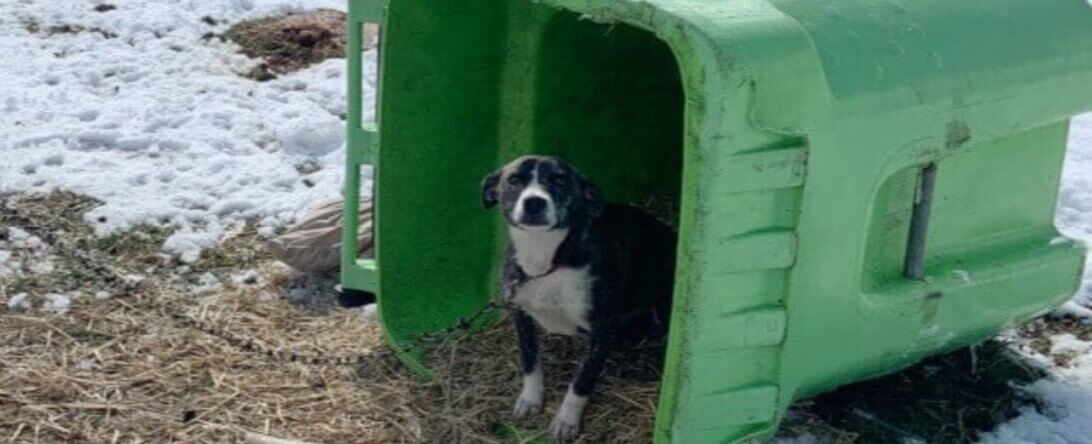Is There Speciesism in Your School? Here’s How to Get Rid of It!
Speciesism, or the mistaken belief that one species is superior to others, is sneaky. It can creep into common school activities, and it’s up to us to help others recognize it and get rid of it. We can’t just let speciesism slide, because animals think, feel, and want to live in peace just like us. It’s never too late to change the way you, your friends, and your school faculty view animals. Check out our list below to see if speciesist lessons and activities are occurring at your school and how to talk to your teacher about replacing them with animal-friendly options.
☹️ Speciesist: Class Pets
😄 Not Speciesist: Class Plants
Even if you love school, you gotta admit, there’s nothing like going back home after a long day. You know who doesn’t get that luxury? Class pets. Most of these animals spend their entire lives inside a lonely, depressing cage in a classroom. Having students take turns taking them home is a terrible idea. Imagine the stress of constantly being dropped into unfamiliar surroundings and handled by strangers.
Why not switch to class plants? Having one or more cute plants in your classroom will brighten everyone’s day, and students can take turns caring for them. Plants can’t feel or think, so it’s completely OK to have them in your classroom. Talk to your teacher and other students about the kinds of plants they’d like to see. 🌻
☹️ Speciesist: Animal Dissection
😄 Not Speciesist: Non-Animal Dissection
You’re probably not the only one in your class who would feel sick if they had to cut into a dead animal. The whole concept is messed up, and it gets even worse when you realize that animals used for dissection are cut from their mothers’ wombs in slaughterhouses, gassed to death in breeding warehouses, and snatched from their homes in nature. The dissection industry destroys lives and ships corpses to schools for profit—and we’re supposed to be cool with that? Heck, no!
There are plenty of humane ways to learn about anatomy. Realistic models like SynFrog let you dissect without any cruelty involved. You can also use dissection simulation software, such as Emind, illustrated dissection guides, and augmented reality to walk you through the lesson. These compassionate options are way more cost-effective and environmentally friendly than animal dissection because they let you repeat lessons as many times as you’d like, while not disrupting the ecosystem.
☹️ Speciesist: 4-H and FFA
😄 Not Speciesist: Leadership Programs
Would you want to make a new friend, hang out with them all summer, and then do nothing to stop them from being killed? If you answered no, then NEVER join 4-H or Future Farmers of America (FFA). These agricultural programs encourage students to raise animals just to be exploited for their body parts. Basically, it teaches them how to betray their friends.
Looking for a compassionate school program? Go for a leadership program like Leaders for Ethics, Animals, and the Planet (LEAP). You’ll have lots of the same opportunities that 4-H and FFA offer—like working with other students, learning from experts, getting paid, and spending time with animals—but you won’t have to stab the animal you’ve built an emotional bond with in the back. Sounds like a win for everyone! 🎉
☹️ Speciesist: Fish Tanks
😄 Not Speciesist: Gardens
Some classrooms keep fish in tanks as class pets, which is extremely cruel. Fish deserve to thrive in wide open waters and enjoy their freedom. Having them confined to a cramped tank in the classroom denies their natural needs and constantly reminds us of their misery. And how can we learn about science by observing animals in a ridiculously unnatural environment?
Talk to your teacher about having the class maintain a garden instead of keeping a fish tank. Caring for a garden teaches biology and leads to gorgeous results. Keeping fish in tanks, on the other hand, contributes to habitat destruction and forces aquatic animals to endure miserable living conditions and a painful death.
☹️ Speciesist: Animal Mascots
😄 Not Speciesist: Human Mascots
Do you love sports, competition, or exciting events with friends? Good news—school sports season is finally here! 🏐🏀⚽ But while living it up inside a high-energy stadium might be fun for you, the chaos can be traumatic for your school’s animal mascot. Using animals as mascots heightens their anxiety and can also create unsafe conditions.
If your school uses an animal mascot, it’s time to turn the job over to a human dressed in a costume. It’s a much kinder choice, and costumed mascots can do things that animal mascots can’t, like leading the crowd in a cheer and performing acrobatic stunts. Tell these schools (or your school) to switch to a human mascot and earn 15 peta2 points in our Rewards Program.
☹️ Speciesist: Petting Zoos
😄 Not Speciesist: Art Walks and Concerts
Ugh, traveling petting zoos. 😒 Imagine how frightening it would be to have strangers constantly touching, handling, and gawking at you. Some schools let petting zoos set up “encounters” to help students de-stress, but for the participating animals, this means a lifetime of stress, trauma, and neglect.
Hot take: Events meant to de-stress students should be de-stressing for everyone. That’s why art walks and concerts are such better choices than petting zoos. These fun events put everyone in a good mood without creating anxiety for animals and compassionate students.
☹️ Speciesist: Fish Biome Projects
😄 Not Speciesist: Animal-Free Interactive Projects and Simulations
Fish biome projects are a whole new level of cruelty. Students are instructed to keep fish in bottles, jars, or other containers to see if they can create a sustainable environment. Spoiler alert: They can’t. The most sustainable environments for fish are their natural habitats. When they’re imprisoned in a plastic bottle, fish can suffer and die. This isn’t educational at all. Fish can’t interact with their environment in the bottle as they would in their natural habitat.
Your school wants students to learn about animals. Well, instead of having them learn through cruelty, why not have them learn through compassion? They can use humane options like Bottle Biology’s TerrAqua tool, a Feed and Grow Fish Simulator, or an Ecosystem in a Bottle lesson to have interactive experiences without the cruelty.
☹️ Speciesist: Donkey Basketball
😄 Not Speciesist: Donkeyless Basketball (and Other Competitive Events)
If you’ve ever seen “donkey basketball,” you know it’s even dumber than it sounds. 🤦 It’s a sport in which donkeys get kicked, shoved, and shouted at while people ride them and play basketball at the same time in front of screaming crowds. Big yikes. Donkeys are super-smart animals who can recognize faces they haven’t seen in years—it’s safe to say they don’t enjoy the commotion and abusive nature of these “games.”
There’s no way that the best idea for fundraising at your school is donkey basketball. Besides a game of donkeyless basketball (aka basketball), your school can hold board game tournaments and other competitive events to rake in those donations.
☹️ Speciesist: Betta Fish Sales
😄 Not Speciesist: Houseplant Sales
Betta fish are beautiful, but the cruel pet industry markets them as “starter pets” and makes a profit at their expense. This means that betta fish end up with people who have little to no idea how to care for them properly, often treating them as if they were inanimate objects, which causes them intense suffering. If your school hosts betta fish sales to make money, it’s contributing to this misery.
Again, there are much better ways to make money. All you have to do is take animals out of the equation and replace them with something else that people enjoy, like houseplants. Many people love succulents, for example, and since they can often be grown in small pots, it would be easy to hold a sale at your school.
Text peta2 to 30933 for ways to help animals, tips on compassionate living, and more!

Terms for automated texts/calls from peta2: http://peta.vg/txt. Text STOP to end, HELP for more info. Msg/data rates may apply. U.S. only.








